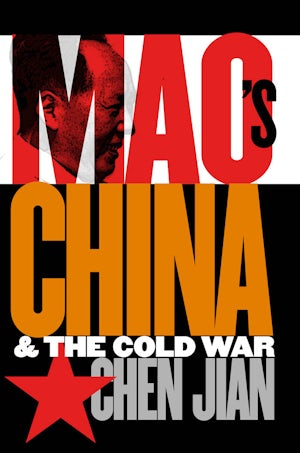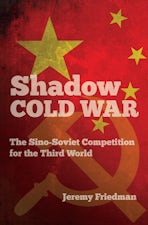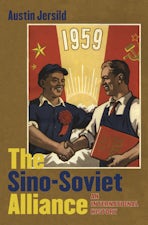Mao's China and the Cold War
By Jian Chen
416 pp., 6.125 x 9.25, 17 photographs, 1 table, 4 maps, notes, bibl., index
Not for sale in South Asia, Afghanistan, or the Maldives
-
Paperback ISBN: 978-0-8078-4932-3
Published: June 2001 -
E-book EPUB ISBN: 978-0-8078-9890-1
Published: March 2010 -
E-book PDF ISBN: 979-8-8908-7345-3
Published: March 2010
New Cold War History
Buy this Book
- Paperback $42.50
- E-Book $29.99
For Professors:
Free E-Exam Copies
The success of China's Communist revolution in 1949 set the stage, Chen says. The Korean War, the Taiwan Strait crises, and the Vietnam War--all of which involved China as a central actor--represented the only major "hot" conflicts during the Cold War period, making East Asia the main battlefield of the Cold War, while creating conditions to prevent the two superpowers from engaging in a direct military showdown. Beijing's split with Moscow and rapprochement with Washington fundamentally transformed the international balance of power, argues Chen, eventually leading to the end of the Cold War with the collapse of the Soviet Empire and the decline of international communism.
Based on sources that include recently declassified Chinese documents, the book offers pathbreaking insights into the course and outcome of the Cold War.
About the Author
Chen Jian is C. K. Yen Professor of Chinese-American Relations at the Miller Center of Public Affairs at the University of Virginia, Professor of History at the University of Virginia, and Zijiang Visiting Professor at East China Normal University.
For more information about Jian Chen, visit
the
Author
Page.
Reviews
"A major contribution to our understanding of Chinese Cold War history. Chen Jian's unrivaled control of the new and plentiful Chinese source materials is evident throughout, as an inspiration to other scholars in the field."—Odd Arne Westad, London School of Economics



